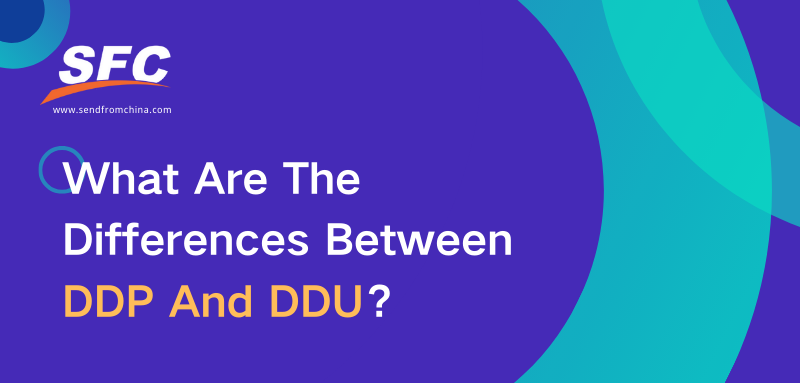TAGS
Hot Research
What Are The Differences Between DDP And DDU
Time: Feb 22,2024 Author: SFC Source: www.sendfromchina.com
In this blog, we'll demystify these two key terms, providing you with a clear understanding of what they mean, how they differ, and the implications of choosing one over the other for your shipments. Whether you're a seasoned business owner looking to optimize your international logistics or a newbie just starting, this guide will equip you with the knowledge you need to make informed decisions and navigate the shipping process with confidence.

Content Table
1. What Is DDP
2. What Is DDU
3. What Are the Differences between DDP and DDU
4. Get Faster Shipping with SFC
5. FAQs
1. What Is DDP
Key aspects of DDP:
• The seller is responsible for all costs and risks until the goods are delivered to the specified destination, including duties, taxes, and other charges.
• This term places the maximum obligation on the seller, making it the most advantageous option for buyers in terms of minimizing their responsibilities.
2. What Is DDU
Key aspects of DDU:
• The seller is responsible for all charges and risks until the goods arrive at the agreed-upon location within the destination country, excluding duties, taxes, and other customs-related charges.
• The buyer takes on the responsibility for import clearance, duties, and taxes.
3. What Are the Differences between DDP and DDU
Cost Implications: Under DDP, the seller must estimate and include all costs up to the final delivery, including customs duties and taxes, in the sale price. DDU allows the buyer to handle the import duties and taxes, possibly offering more control over these expenses but requiring a good understanding of local customs regulations.
Practical Use: DDP is often preferred by buyers who wish for a hassle-free purchase with a clear cost upfront. Sellers willing to manage the complexities of international shipping and customs clearance might opt for DDP to offer a better customer experience. DDU (or its current equivalent, DAP) might be chosen when buyers want more control over the import process or when sellers are unable or unwilling to deal with the destination country's customs procedures.
4. Get Faster Shipping with SFC
1. Over 17 years 3PL and order fulfillment experience
2. DDP (Delivered Duty Paid) Service
3. All-in-one tracking number
4. API
5. 30 days of free storage
6. No hidden fee
7. Custom packaging
8. Worldwide shipping solutions
5. FAQs
1. What impacts the cost more, DDP or DDU?
2. How do I decide between DDP and DDU for small shipments?
3. Are there any hidden fees I should be aware of with DDU?
4. Can DDP and DDU affect delivery times?
5. Is one method safer than the other in terms of ensuring delivery?
 Post Views:3590
Post Views:3590
Copyright statement: The copyright of this article belongs to the original author. Please indicate the source for reprinting.
Previous Post
Crowdfunding Fulfillment: Why Fulfillment Is Important For Your Crowdfunding Campaign
Next Post
China 3PL Dropshipping: How To Make AliExpress Shipping Faster
Get a Custom China Fulfillment Solution with FREE Storage for 30 Days
 Want to know about our services, fees or receive a custom quote?
Want to know about our services, fees or receive a custom quote?
 Please fill out the form on the right and we will get back to you within a business day.
Please fill out the form on the right and we will get back to you within a business day.
 The more information you provide, the better our initial response
will be.
The more information you provide, the better our initial response
will be.






 TAGS:
TAGS: